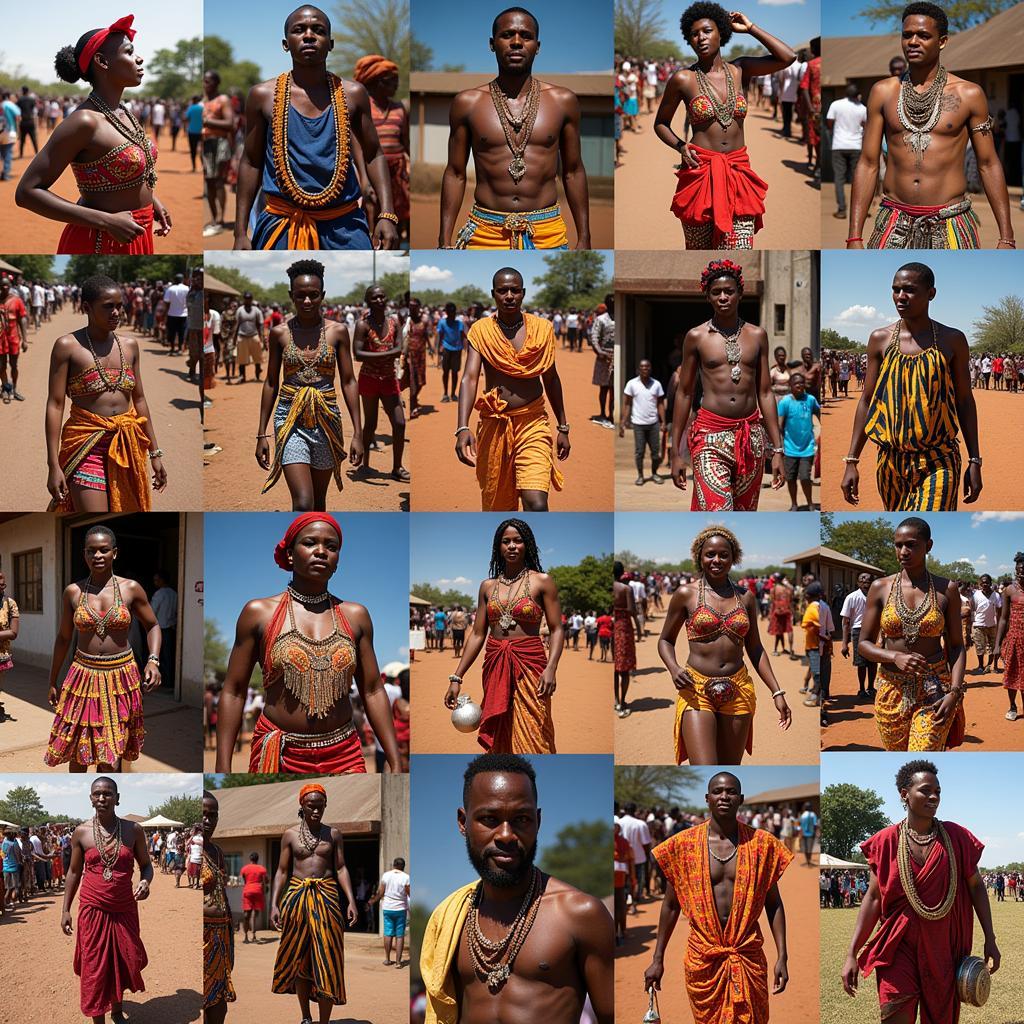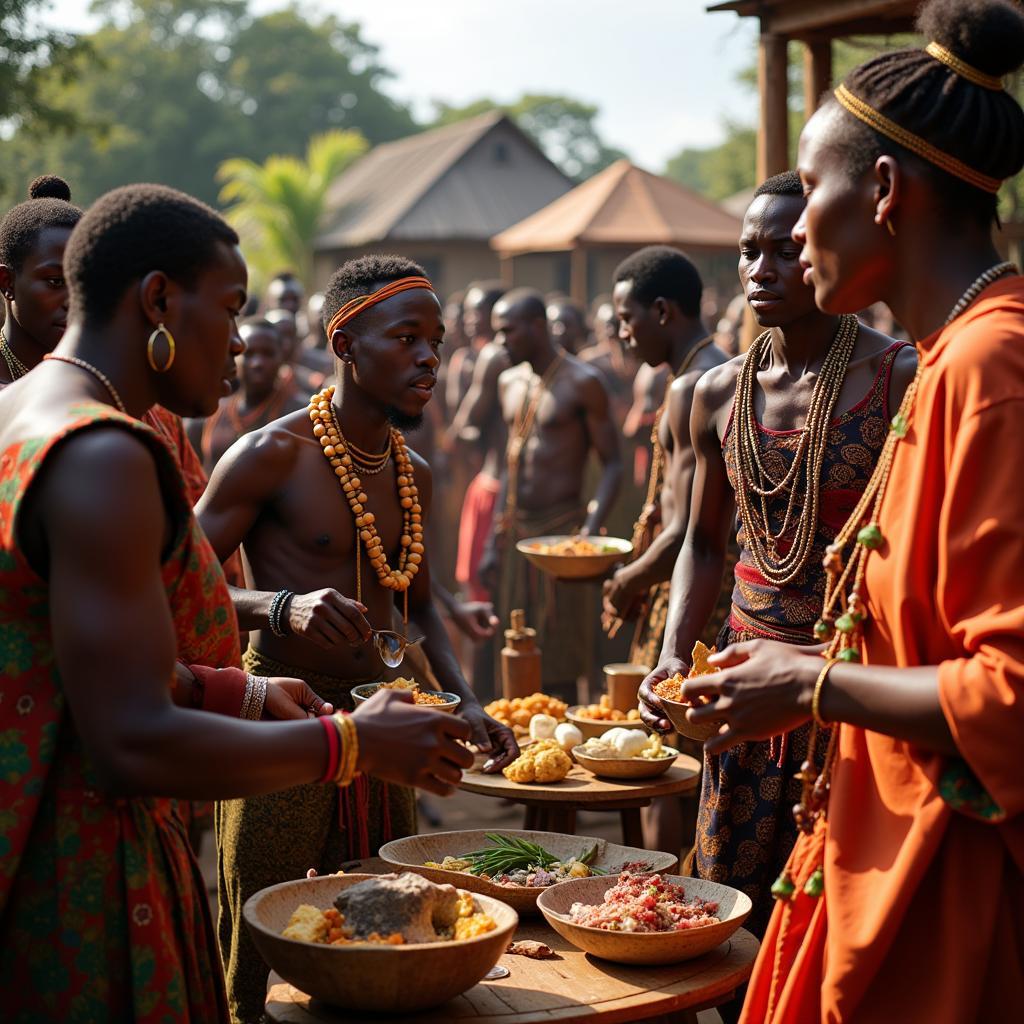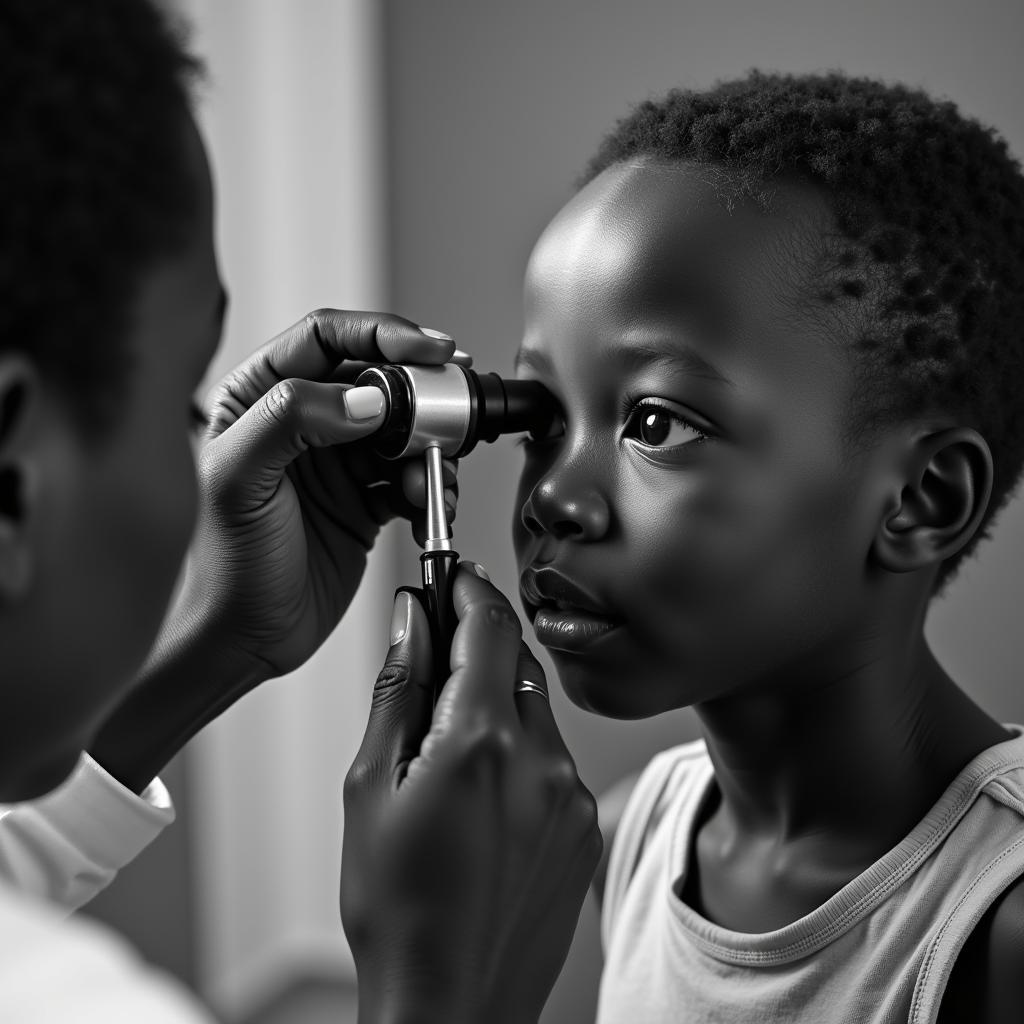Exploring the Tapestry of African Continent Peoples
The African continent, home to a rich tapestry of cultures and peoples, is often misconceived as a monolithic entity. This misconception couldn’t be further from the truth. The phrase “African Continent Peoples” itself speaks to a vast and vibrant diversity, encompassing an estimated 3,000 distinct ethnic groups, each with their own unique traditions, languages, and stories.
A Continent of Shared Heritage and Striking Differences
From the bustling medinas of Morocco to the sweeping savannas of Tanzania, the African continent is a land of breathtaking contrasts. This diversity is most evident in its people. While generalizations about such a vast continent are impossible, there are unifying threads that connect its inhabitants. A deep respect for ancestry, a strong sense of community, and an unshakeable connection to the land are values shared by many African cultures.
 Diverse African Cultures and Traditions
Diverse African Cultures and Traditions
Language: A Symphony of Voices
It is estimated that over 2,000 languages are spoken across the African continent, a testament to its incredible linguistic diversity. These languages are often grouped into broader language families, such as Afro-Asiatic, Niger-Congo, and Nilo-Saharan, each with its own branches and sub-groups. This linguistic tapestry reflects centuries of migration, cultural exchange, and adaptation.
A Spectrum of Religious Beliefs
Religion plays a significant role in the lives of many African peoples. Islam and Christianity have a strong presence on the continent, often interwoven with indigenous beliefs and practices. Traditional African religions, often characterized by a reverence for nature and ancestor worship, continue to hold deep significance for many communities.
 Religious Ceremony in Africa
Religious Ceremony in Africa
The Challenges and Triumphs of African Continent Peoples
The peoples of the African continent have faced significant challenges throughout history. Colonialism, conflict, poverty, and disease have left their mark. Yet, amidst these adversities, the resilience, creativity, and spirit of African people have shone through.
The Arts: A Tapestry of Expression
From the intricate beadwork of the Maasai to the powerful rhythms of West African drumming, art is an integral part of life for African continent peoples. These artistic traditions serve not just as a form of entertainment, but also as a means of storytelling, preserving history, and expressing cultural identity.
Looking Ahead: A Continent on the Rise
Today, a new generation of Africans is working to shape the continent’s future. Driven by innovation, entrepreneurship, and a deep-seated desire for progress, they are challenging old narratives and forging new paths. The African Union, comprising 55 member states, is a testament to the growing pan-African spirit and the collective desire for unity and development. For a deeper dive into the African Union, explore more about its African Union members.
Understanding the Nuances of “African Continent Peoples”
It is crucial to remember that any attempt to categorize such a diverse population comes with inherent limitations. Each ethnic group, with its unique history and cultural expressions, adds to the vibrant mosaic that is Africa.
“There is no singular African experience,” says Dr. Abena Asare, a renowned anthropologist specializing in African cultures. “To truly understand the continent’s people is to appreciate the nuances, complexities, and shared humanity that bind us all.”
Conclusion: A Continent of Endless Discovery
The journey to understanding the “African continent peoples” is one of continuous learning and unlearning. It requires us to shed preconceived notions and embrace the richness and complexity of human experience. By engaging with the histories, cultures, and aspirations of its people, we can begin to appreciate the true tapestry of the African continent – a land teeming with life, resilience, and boundless potential. To learn more about the people of Africa, check out this insightful resource on African countries peoples.

